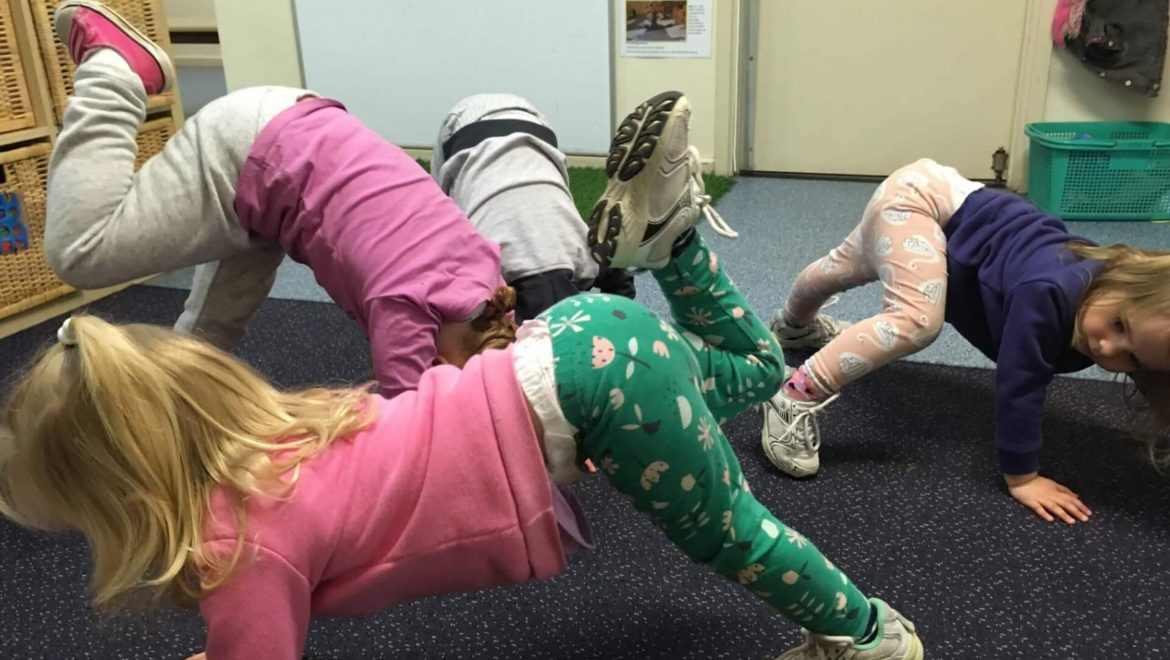Start Active, Stay Active Fact Sheet
Infants who are not yet walking
- Physical activity should be encouraged from birth, particularly through floor-based play and water-based activities in safe environments.
- All under 5’s should minimise the amount of time spent being sedentary (being restrained or sitting) for extended periods (except time spent sleeping).
Individual physical and mental capabilities should be considered when interpreting the guidelines.
Examples of physical activity that meet the guidelines.
For infants who are not yet walking, physical activity refers to movement of any intensity and may include:
- ‘Tummy time’ – this includes any time spent on the stomach including rolling and playing on the floor
- Reaching for and grasping objects, pulling, pushing and playing with other people
- ‘Parent and baby’ swim sessions
Floor-based and water-based play encourages infants to use their muscles and develop motor skills. It also provides valuable opportunities to build social and emotional bonds.
Mininising sedentary behaviour is also important for health and development and may include:
- Reducing time spent in infant carriers or seats
- Reducing time spent in walking aids or baby bouncers (these limit free movement)
- Reducing time spent in front of TV or other screens
What are the benefits of movement?
- Develops motor skills
- Improves cognitive development
- Contributes to a healthy weight
- Enhances bone and muscular development
- Supports learning of social skills
Children who are capable of walking
Children of pre-school age who are capable of walking unaided should be physically active daily for at least 180 minutes (3 hours), spread throughout the day.
Examples of physical activity that meet the guidelines
Physical activity is likely to occur mainly through unstructured active play but may also include more structured activities. Activities can be of any intensity (light or more energetic) and may include:
- Activities which involve movements of all the major muscle groups, ie. the legs, buttocks, shoulders and arms, and movement of the trunk from one place to another
- Energetic play, eg. Climbing frame or riding a bike
- More energetic bouts of activity, eg. running and chasing games
- Walking/skipping to shops, a friend’s home, a park or to and from a school
Minimising sedentary behaviour may include:
- Reducing time spent watching TV, using the computer or playing video games
- Reducing time spent in a pusher or car seat—this can also help to break up long periods of sedentary behaviour.
What are the benefits of being active for at least 180 minutes each day?
- Improves cardiovascular health
- Contributes to a healthy weight
- Improves bone health
- Supports learning of social skills
- Develops movement and co-ordination
Why is physical activity important in early childhood services for infants and young children?
Physical activity is vital for a child’s development and lays the foundation for a healthy and active life. Early childhood services are ideally placed to foster the development of good physical activity habits early in life and to encourage families to engage in regular physical activity.
Early childhood services should offer a wide choice of play-based, physically active learning experiences that link to children’s interests, abilities, identity and prior knowledge. Physical activity in childcare needs to be made up of both structured (ie. Intentionally taught) physical activity and unstructured, spontaneous activity in addition, as active role models, educators can encourage children to participate in physical activity.
The benefits of being active for young children include:
- Promoting healthy growth and development
- Helping to achieve and maintain a healthy weight
- Building strong bones and muscles
- Improving cardiovascular fitness
- Improving balance, coordination and strength
- Maintaining and developing flexibility
- Improving posture
- Assisting with the development of gross motor and fine motor skills
- Providing the opportunity to develop fundamental movement skills
- Helping to establish connections between different parts of the brain
- Improving concentration and thinking skills
- Improving confidence and self-esteem
- Relieving stress and promoting relaxation
- Providing opportunities to develop social skills and make friends
- Improving sleep

